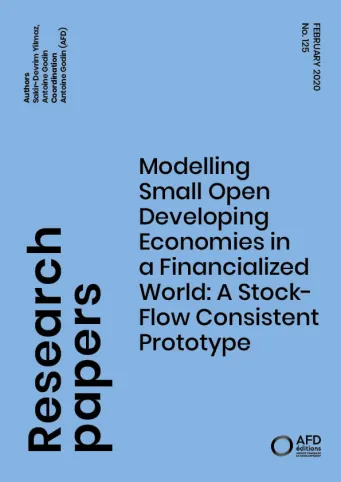Share the page
Modelling Small Open Developing Economies in a Financialized World: A Stock-Flow Consistent Prototype Growth Model
Published on

This paper builds a stock-flow consistent growth model in continuous time in order to analyze the effects of policy rates in financial centres on a small open developing economy with an open capital account and a flexible exchange rate. Using a balance-sheet approach and explicitly modelling real-financial spheres interactions and propagation mechanisms, we show that a fall in global policy rates triggers appreciation-induced boom-bust episodes in the small open economy, driven by portfolio flows and cross-border lending. During the boom, public balances improve, unemployment and inflation fall and current account deficit widens. Our results show that the boom is larger if foreign exchange market adjustment is sluggish, expectations adjust more rapidly, banking sector is monopolistic or risk perception is less sensitive to fundamentals. In the absence of productivity growth differentials between the developing economy and the rest of the world, the balance-of payments constrained growth rate is a strong attractor and the economy gravitates towards this growth rate as financial variables and exchange rates adjust to their new levels.
Useful Information
-
Authors
-
Sakir-Devrim YILMAZ, Antoine GODIN
-
Coordinators
-
Antoine GODIN
-
Edition
-
125
-
Number of pages
-
64
-
ISSN
-
2492 - 2846
-
Collection
-
Research Papers
